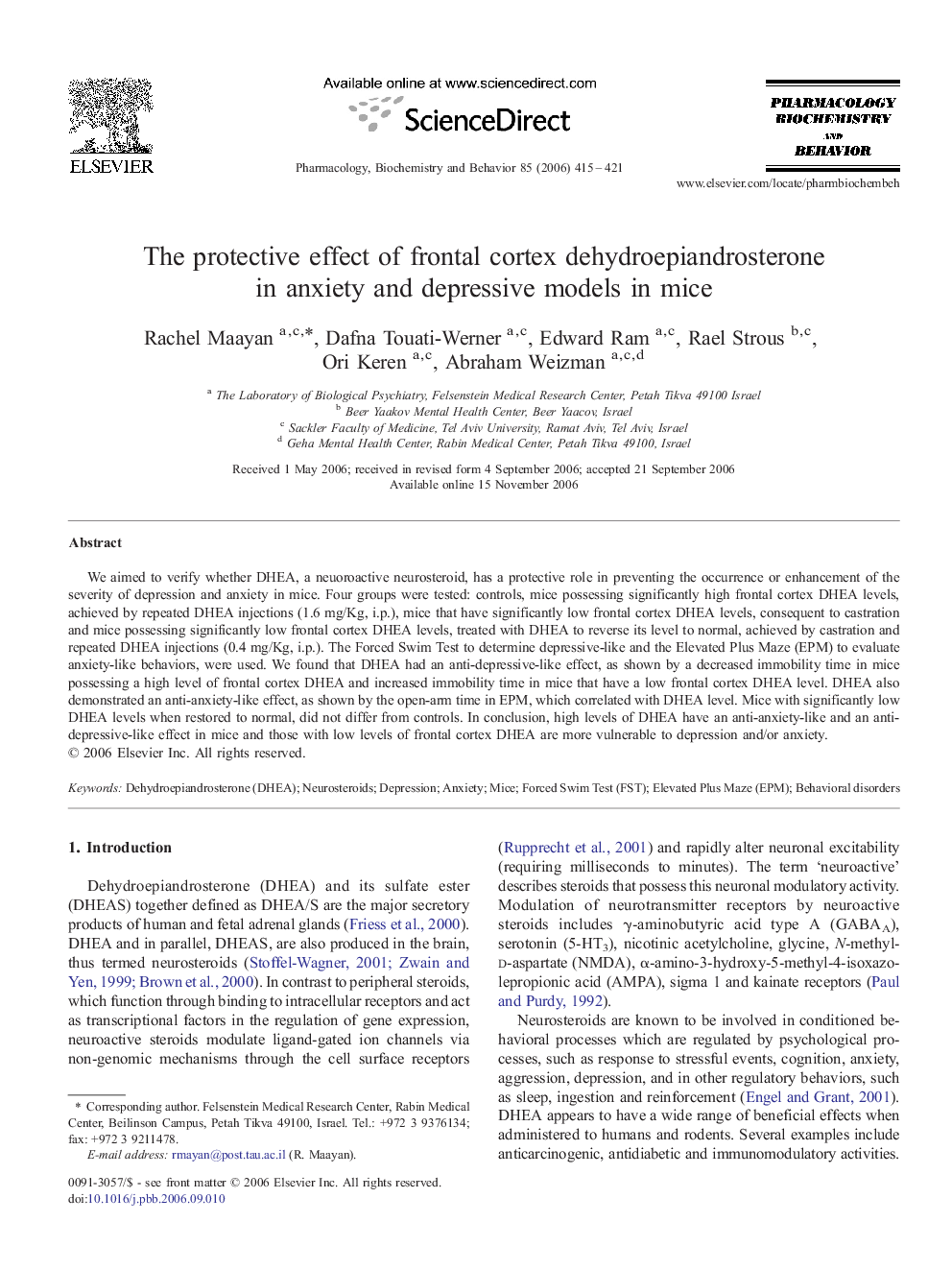| Article ID | Journal | Published Year | Pages | File Type |
|---|---|---|---|---|
| 2014195 | Pharmacology Biochemistry and Behavior | 2006 | 7 Pages |
We aimed to verify whether DHEA, a neuoroactive neurosteroid, has a protective role in preventing the occurrence or enhancement of the severity of depression and anxiety in mice. Four groups were tested: controls, mice possessing significantly high frontal cortex DHEA levels, achieved by repeated DHEA injections (1.6 mg/Kg, i.p.), mice that have significantly low frontal cortex DHEA levels, consequent to castration and mice possessing significantly low frontal cortex DHEA levels, treated with DHEA to reverse its level to normal, achieved by castration and repeated DHEA injections (0.4 mg/Kg, i.p.). The Forced Swim Test to determine depressive-like and the Elevated Plus Maze (EPM) to evaluate anxiety-like behaviors, were used. We found that DHEA had an anti-depressive-like effect, as shown by a decreased immobility time in mice possessing a high level of frontal cortex DHEA and increased immobility time in mice that have a low frontal cortex DHEA level. DHEA also demonstrated an anti-anxiety-like effect, as shown by the open-arm time in EPM, which correlated with DHEA level. Mice with significantly low DHEA levels when restored to normal, did not differ from controls. In conclusion, high levels of DHEA have an anti-anxiety-like and an anti-depressive-like effect in mice and those with low levels of frontal cortex DHEA are more vulnerable to depression and/or anxiety.
